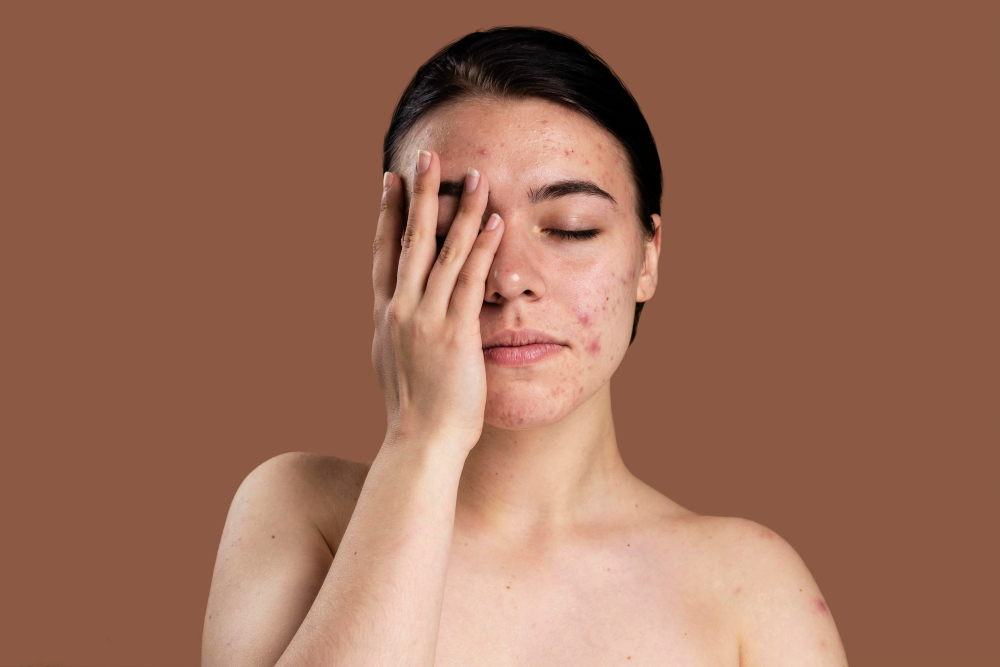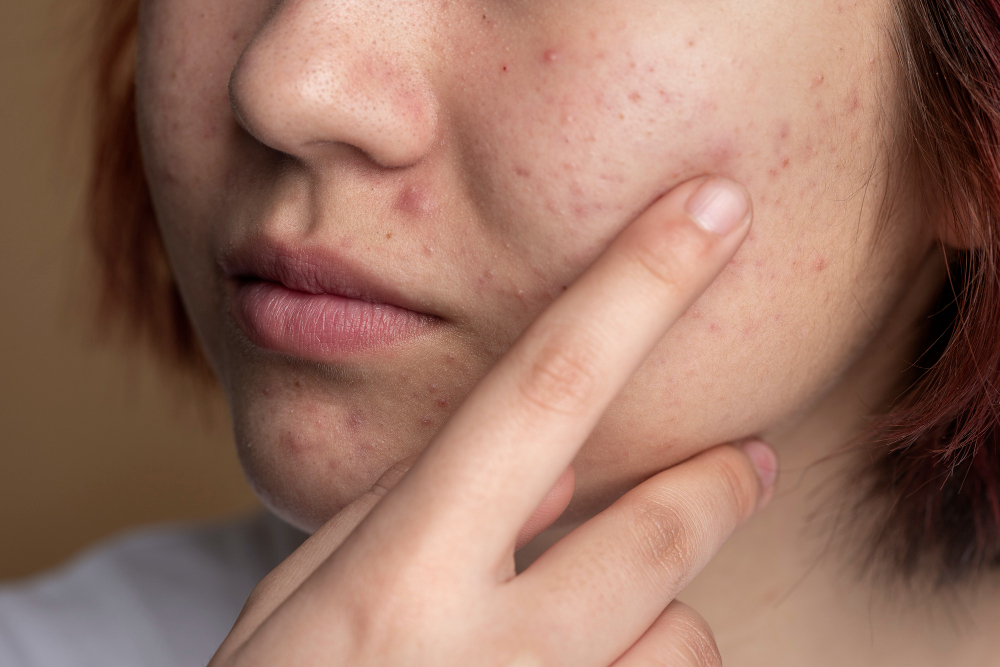
Your skin is your body’s largest organ and serves as a protective barrier, but it’s not invincible. Skin inflammation is a common issue many of us have experienced at some point. Whether it’s due to allergies, irritants, or underlying health conditions, it can be both uncomfortable and unsightly. In this blog, our experts give their insights on skin inflammation, what causes it, how to reduce it and when it’s time to consult a healthcare professional.
What is Skin Inflammation?
Skin inflammation, medically known as dermatitis, is the body’s natural response to injury, infection, or irritation. It manifests as redness, swelling, and sometimes pain or itchiness. The skin’s immune cells release chemicals to help repair the affected area, which leads to the classic signs of inflammation.
Understanding the Causes of Skin Inflammation
Understanding the root causes of skin inflammation is crucial for restoring the health and radiance of your skin as it can manifest in various ways, from redness and itching to more persistent conditions. Allergies can be a significant trigger for skin inflammation, with reactions to substances like pollen, pet dander, or certain foods leading to irritation. Additionally, exposure to irritants, such as harsh soaps, chemicals, or extended contact with water, can initiate inflammatory responses.
Infections, whether bacterial, viral, or fungal, can also be culprits, exemplified by conditions like cellulitis and athlete’s foot. Autoimmune disorders like psoriasis involve the immune system mistakenly attacking healthy skin cells, resulting in chronic inflammation. Genetics also play a role, as some individuals have a genetic predisposition to skin conditions like eczema, characterised by ongoing inflammation. Understanding these causes empowers individuals to take control of their skin’s well-being.
What Does Skin Inflammation Look Like?

The specific symptoms and their severity can vary depending on the underlying cause of the skin inflammation.
- Redness: The affected area of the skin often appears redder than usual.
- Swelling: Inflamed skin can become puffy or swollen.
- Heat: The skin may feel warm or hot to the touch.
- Itchiness: Itchy skin is a common symptom of inflammation.
- Pain or discomfort: The inflamed area can be tender or painful.
- Skin discolouration: Chronic inflammation can lead to changes in skin pigmentation.
- Scaling or flaking: The skin may peel or flake in areas of inflammation.
- Dryness: Inflammation can lead to dry and rough skin.
Skin Inflammation Treatments: How to Reduce Skin Inflammation and Redness?

For the most part, inflammation on the skin can be treated with a few simple steps, however, if it is severe you may need to consult a dermatologist for specific skin inflammation treatments.
-
Avoid Triggers
Some skincare products may contain ingredients that irritate your skin, leading to inflammation and redness. Avoid products with harsh chemicals, fragrances, or known allergens. If your skin is sensitive to environmental factors, such as UV radiation or harsh weather conditions, using protective gear like sunscreen, hats, or clothing that covers your skin can help prevent inflammation.
-
Topical Treatments
OTC creams can help reduce skin inflammation and itchiness as they often contain anti-inflammatory ingredients that provide relief for mild cases of redness. In more severe cases, a dermatologist may prescribe topical corticosteroids or other medications tailored to your specific condition. These stronger treatments can be highly effective in reducing skin inflammation and redness.
-
Moisturise
Well-hydrated skin is less prone to inflammation and redness. If your face looks red and inflamed, choose a moisturiser that is free of irritants and allergens. Look for products that contain ingredients like ceramides, hyaluronic acid, or glycerin, which help retain moisture and strengthen the skin barrier. Fragrances in moisturisers can sometimes trigger irritation. Opt for fragrance-free options to minimise the risk of further inflammation.
-
Cold Compress
Applying a cold compress can constrict blood vessels and reduce blood flow to the inflamed area. This can help soothe the skin’s redness and alleviate inflammation. Wrap an ice or a cold pack in a thin cloth and apply it to the affected area for 10-15 minutes. Avoid direct contact with ice on the skin, as it can cause frostbite.
-
Chemical Peel
Chemical peels can help improve skin conditions, like acne, which involve inflammation by exfoliating the skin’s top layer, reducing clogged pores. However, they’re not appropriate for chronic skin conditions such as eczema, psoriasis, or rosacea. Consult a dermatologist at Bodycraft Clinic for personalised advice based on your specific skin condition to determine if a chemical peel is suitable.
When to Consult a Doctor?

In some cases, skin inflammation can be a sign of an underlying health issue. It’s essential to see a doctor if:
- It’s Severe: If the inflammation is extensive, painful, or doesn’t improve with over-the-counter treatments.
- Recurring: If it keeps coming back, it may indicate an underlying condition.
- Infection: When there are signs of infection, such as pus, increased pain, or fever.
- Systemic Symptoms: When skin inflammation is accompanied by other symptoms like joint pain, fatigue, or unexplained weight loss.
- Allergies: If you suspect an allergy, a specialist can help identify the allergen and provide guidance.
The Takeaway
Inflammation is a common issue that can range from mild irritation to chronic conditions. Identifying the causes of skin inflammation and taking appropriate steps can help alleviate discomfort. However, when in doubt or when symptoms persist, consulting a healthcare professional is the best course of action for skin inflammation treatments.
FAQs around Skin Inflammation
1. How long does skin inflammation last?
The duration of skin inflammation varies depending on the cause. Acute inflammation might last a few days, while chronic conditions can persist for weeks, months, or even years.
2. How to prevent skin inflammation?
Preventing skin inflammation involves avoiding triggers, maintaining good hygiene, and using gentle skincare products. If you have a predisposition to skin conditions, consult a dermatologist for personalised advice.
3. Can inflammation cause itchy skin?
Yes, inflammation often causes itchiness. Itchy skin is a common symptom of skin conditions like eczema, hives, and psoriasis.
4. What are the 5 classic signs of inflammation?
The five classic signs of inflammation are redness (rubor), swelling (tumour), heat (calor), pain (dolour), and loss of function (functio laesa). These symptoms are the body’s natural response to injury or irritation.